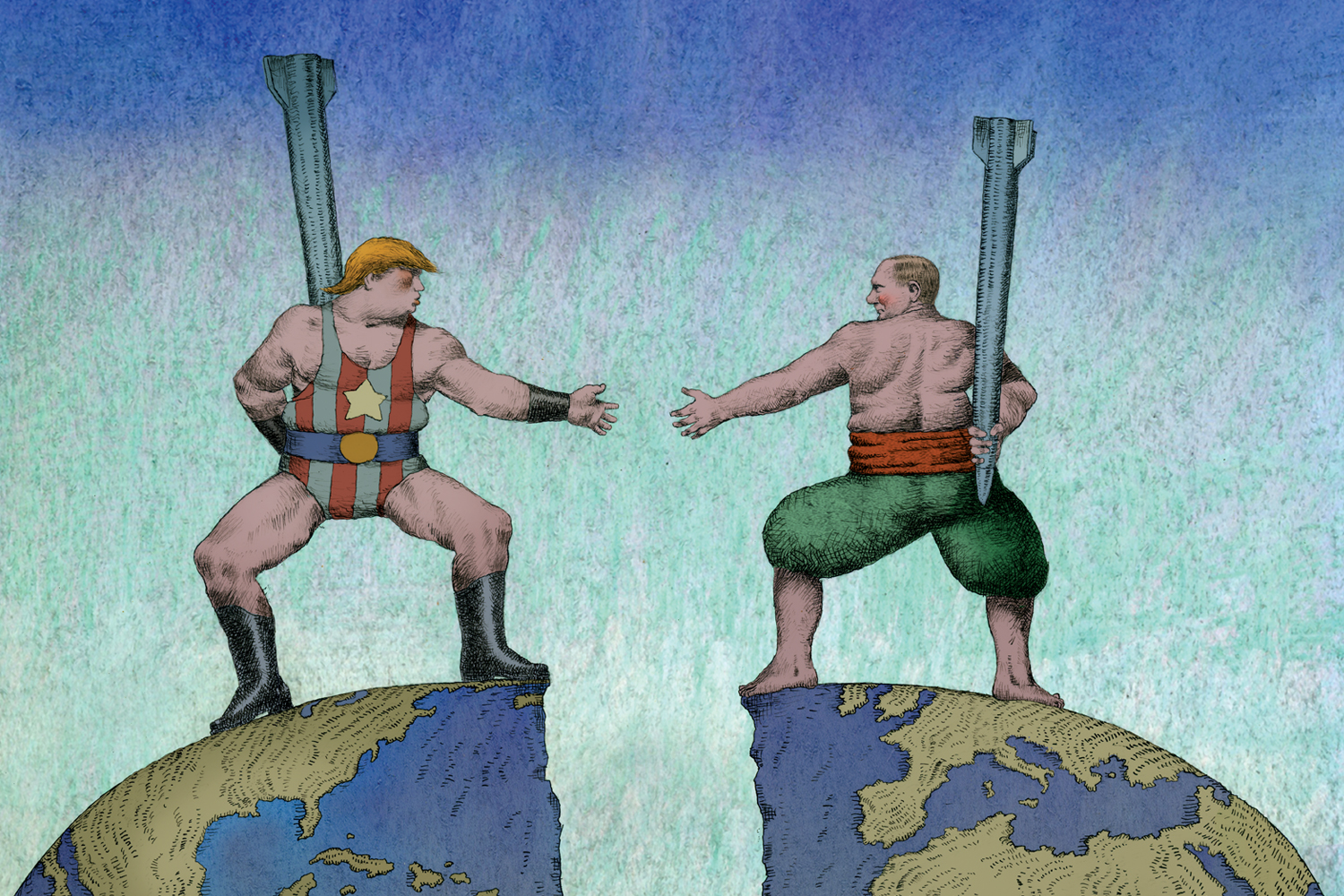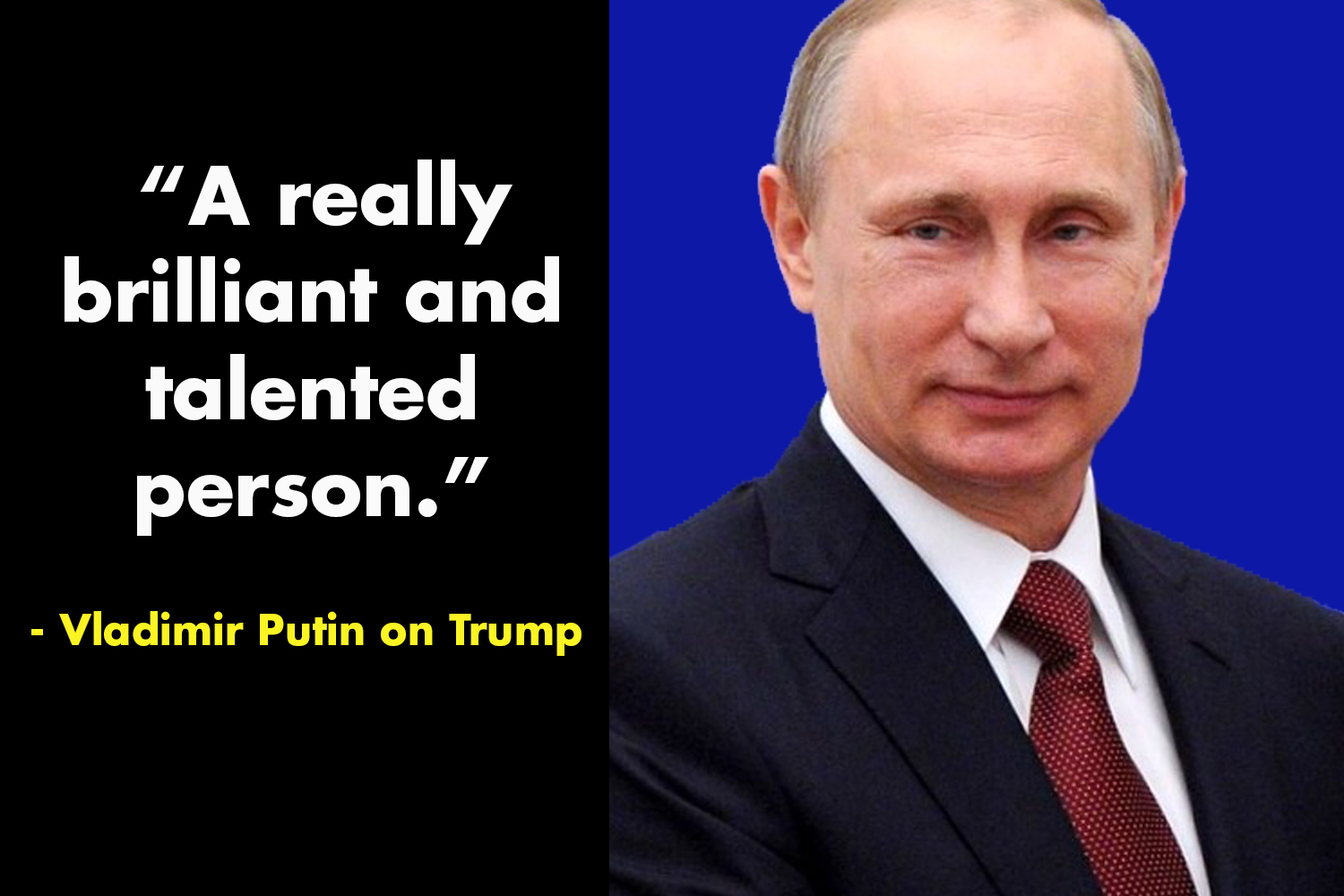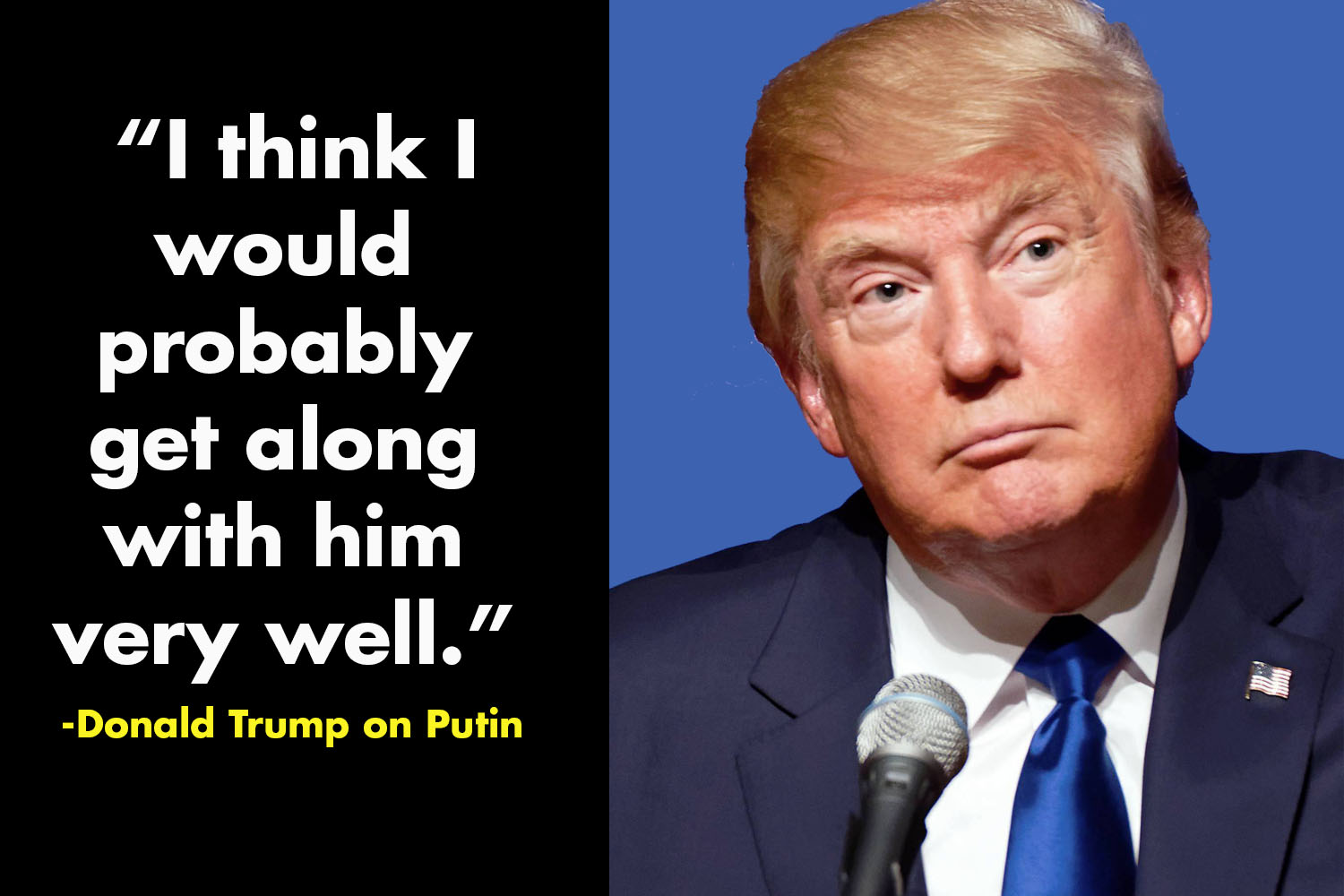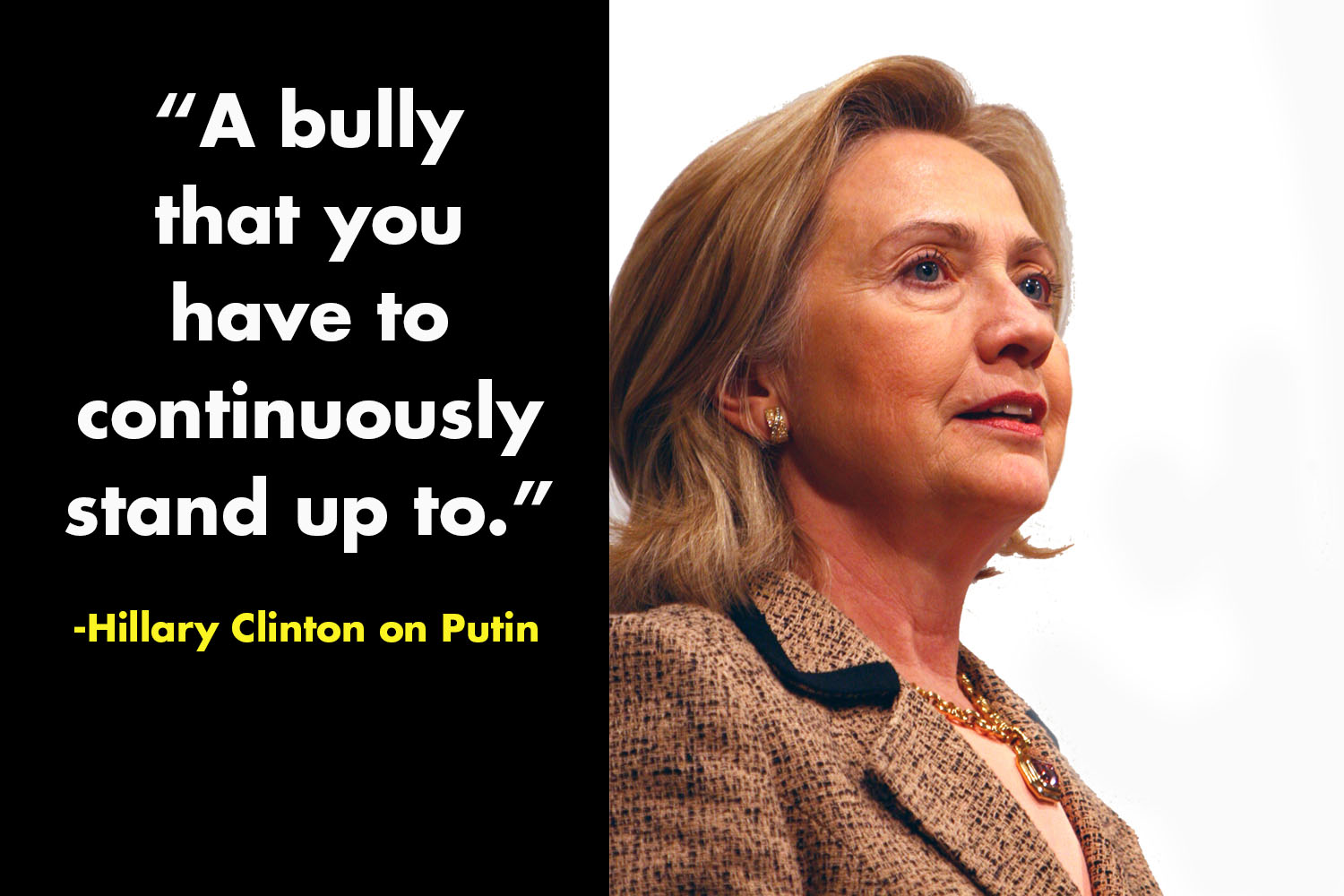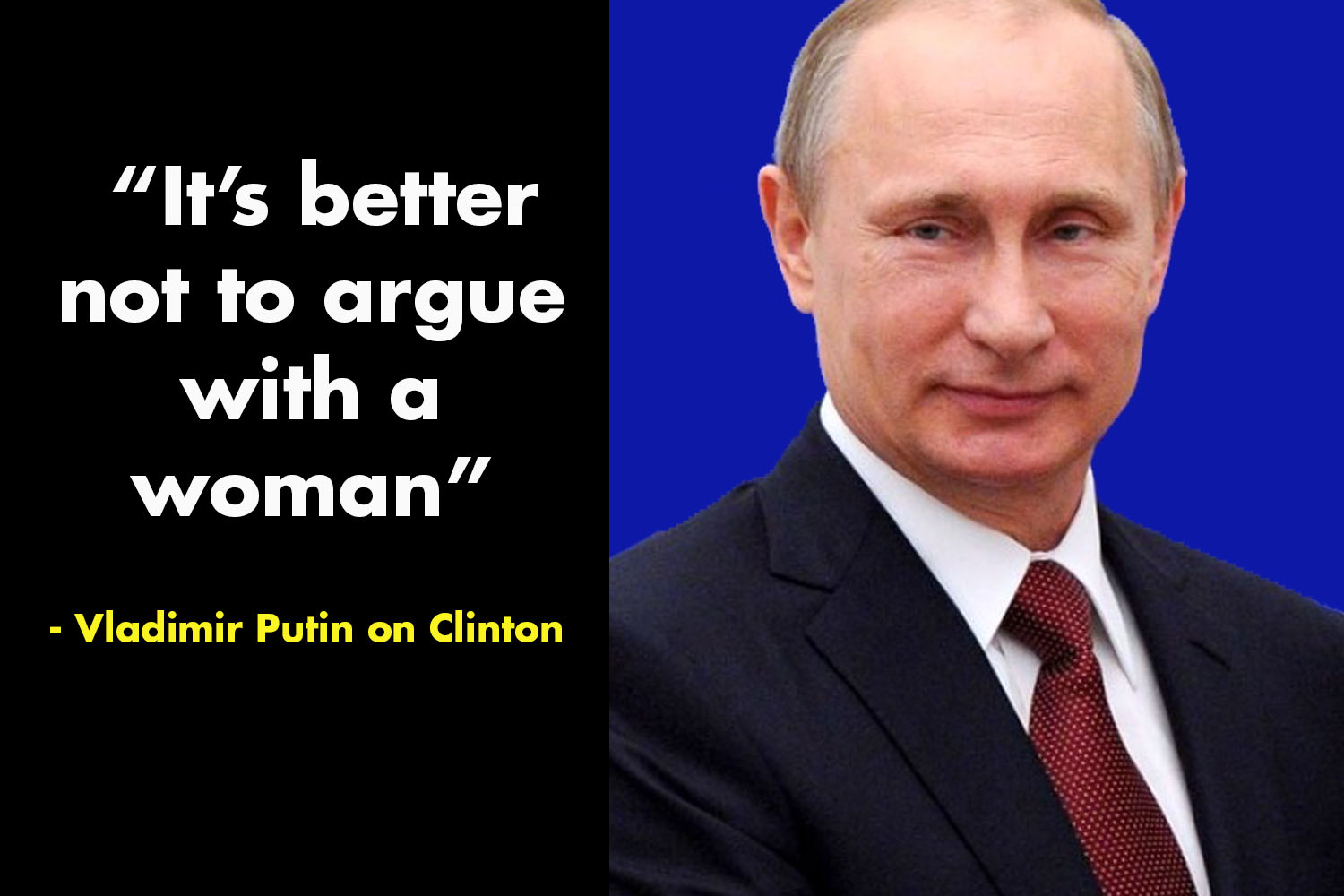Illustration by Brad Holland
A new president, old animosities,
and uncertain alliances; welcome to the New Cold War
On Oct. 15, 1962, an American spy plane took photographs of Soviet missiles being installed in Cuba. The missiles were capable of delivering nuclear warheads to both American and Canadian targets. For a week, President Kennedy discussed America’s options with his advisors, deciding finally on a naval blockade as opposed to air strikes against the missile sites. On Oct. 22, he went on television and told the American public of the situation, promising further action if the missiles weren’t dismantled.
All NATO leaders, including Canadian Prime Minister John Diefenbaker, were told of Kennedy’s decision before the public broadcast. Diefenbaker was miffed that he hadn’t been informed earlier and expressed doubts about the aerial photographs, asking for more proof; he suggested sending a UN team to verify the Soviet missiles. Diefenbaker’s stance may have been tempered by his personal enmity with Kennedy. On their first meeting Kennedy mispronounced Diefenbaker’s name then publicly, though gently, ridiculed Diefenbaker’s (admittedly terrible) French.
Diefenbaker’s actions were also tempered by the political capital he had invested in an anti-American stance; he had campaigned on a platform that decried American influence on Canadian affairs, warning that we were in danger of becoming “a virtual 49th state of the American union.”
His anti-American stance was bolstered by a confidential memo that was inadvertently left behind by one of Kennedy’s advisors after a meeting between the two leaders. The ‘Rostow Memo’ outlined American goals, including where to “push” Canada on certain issues. Diefenbaker was furious. When Kennedy requested that Canada raise its military awareness level to DEFCON 3 (an increase in force readiness, with the air force prepared to mobilize in 15 minutes) Diefenbaker initially refused. In the end, he agreed, though by that time the crisis was largely over. Canada’s navy played a small, unheralded part in the crisis, creating a submarine screen in the North Atlantic to deter Soviet subs.
“They will do what I tell them to do, they’re
not going to refuse me.
If I say do it, they’re going to do it.”
Those 13 days were the most intense of the Cold War and the world held its breath. Canadian schools intensified their nuclear drills, children ushered out into the hall or under their desks. Diefenbaker held to the idea that Kennedy had mishandled the crisis, effectively playing Russian roulette with global safety. He wasn’t alone. French President Charles de Gaulle said that being allied with the U.S. during the crisis was “annihilation without representation.”
The best thing to come out of the Cuban Missile Crisis was the fact that the world had seen the brink, and no one wanted to return there.
And now a new Cold War is upon us. At the Munich Security Conference in February, Russian Prime Minister Dimitri Medvedev announced, somewhat ominously, “Sometimes I wonder whether it is 2016 we live in, or 1962.” In the west, the threat of Russian belligerence has been largely overshadowed by the ‘War on Terror’ and ISIS. But in his book The New Cold War, Edward Lucas, the former Moscow bureau chief for The Economist, warns that we ignore Russia at our peril. Once more it is defined by domestic oppression, an increasingly aggressive foreign policy and a twisted nationalism.
What will the new Cold War look like?
Personalities were critical to the last one—the American Brahmin versus the shrewd peasant. Though in looking at the written communication between Kennedy and Khrushchev, amid the ideological plugs and convenient fictions (that 12-year-old Soviet bombers could no longer be considered offensive weapons), the language is carefully conciliatory, each man recognizing that nuclear war would be madness.
By most metrics, Vladimir Putin is more belligerent than Nikita Khrushchev. He is also far more egomaniacal. A curious snapshot of Putin’s ego is seen in his hockey exploits—he scored eight goals in an exhibition game, most of them assisted by former NHL players Pavel Bure and Valeri Kamensky. Judging from the video, his hockey skills are roughly those of 12-year-old house league player. He is awkward on skates—the kid who is picked last. But Bure and Kamensky set him up repeatedly so he could claim an outlandish number of goals (his team won 18-6—the Defence Minister got a hat trick). Perhaps it was all in good fun. Though this image was used, along with shots of Putin scuba diving, in judo gear, and riding shirtless on a horse, to bolster his persona as a man of action.
We are only weeks away from a new American president, and the issue of how Putin will match up with either Hillary Clinton or Donald Trump looms larger. In many ways, Trump is Putin’s mirror image. Both have adolescent egos that require constant attention and bolstering (often by themselves). Neither has a firm grip on the truth; as of the end of July Trump assertions checked by PolitiFact—essentially a political fact-checking service—were 71 per cent False, Mostly False, or Pants-on-Fire. Each man is capable of creating his own reality.
Trump campaigned on the idea of “Making America great again.” Like Ronald Reagan before him, he invoked a moment in America’s past that owes as much to cinema as reality.
Putin has made the same promise: To return Russia to a glorious past when it was one of two world superpowers. The breakup of the Soviet Union has been an ongoing humiliation, something Putin has capitalized on. Economic greatness is beyond them, at least in the short term; the Russian economy is largely a one-note (oil) mess. But military greatness is an achievable goal.
What constitutes military greatness? For Putin, it appears to be the ability to instill fear. Like any street thug, he equates fear with respect. His sabre-rattling began with Crimea and the Ukraine, and now he has conducted snap military exercises near Poland’s border with as many as 160,000 troops.
To emphasize Russia’s power, a state-sponsored television presenter reminded his audience that Russia could turn the U.S. into “radioactive dust” and announced that Obama’s fear of Putin is what made his hair turn grey. There is a concerted attempt to stir up the population, to blame the West for any economic woes, and to deify Putin as the man who will make Mother Russia great again.
In the course of his campaigning, Trump has done roughly the same. He sets up an enemy to blame for America’s woes (illegal Mexican immigrants, China, Muslims) and announces that he will solve the problem, with violence if necessary. When asked if he would use the military to contravene international law, including the use of torture, Trump responded, “They will do what I tell them to do, they’re not going to refuse me. If I say do it, they’re going to do it.” Retired U.S. lieutenant-general Mark Hertling suggested that Trump proposed using the military as his personal “palace guard.”
So what happens when these two meet?
When asked this question on CBS’s Face the Nation Trump said, “I think I would probably get along with him very well.” For his part, Putin praised Trump as “a really brilliant and talented person.” It helps that Trump hasn’t condemned Russia’s military encroachment into the Ukraine and that neither is in favour of a free press. So, perhaps they will recognize one another as kindred spirits, two egoists bestriding the world, and they’ll get along famously. Though appeasement is more worrisome than confrontation.
But both men are volatile and used to getting their way, and in any negotiation there is always the possibility that one will simply walk away. Trump has already threatened to do just that, saying he wants to negotiate a great deal for America, but is prepared to walk away from the table if that doesn’t happen.
Would Hillary Clinton be a better match-up for Putin? She brings experience in geopolitics as Secretary of State, eight years in the White House, and a more sophisticated grasp of foreign affairs than Trump, but she also brings a lot of baggage. She has described her relationship with Putin as “interesting” and characterized him as a bully that you have to “continuously stand up to.” She also compared him to Adolf Hitler, to which Putin responded, “It’s better not to argue with a woman.”
Oddly, Trump used video footage of Putin in a judo match in an attack ad on Hillary Clinton, implying she doesn’t have the strength to stand up to the world’s bullies. The message is: it takes a strongman to deal with a strongman. Yet Clinton has in fact stood up to him while Trump has ignored Putin’s encroachments in the Ukraine and Crimea and dismissed the idea of Russian journalist Anna Politkovskaya being assassinated for her criticism of the Kremlin.
Putin accused Clinton of meddling in internal Russian politics when she was Secretary of State by encouraging and funding activists, and has allegedly said that as president, she presents a greater threat of war than Trump.
So neither scenario is encouraging. And in 1962, the Cuban Missile Crisis unfolded in slow motion; Kennedy had a week to mull his response. Any new crisis will likely happen in a much shorter time frame and demand an immediate response. Who determines that response will be critical.
And what of Canada’s role in the New Cold War? The country is less concerned about American influence now than it was 54 years ago when Diefenbaker butted heads with Kennedy. Dief thought his actions would make him look independent, but the Canadian public viewed him as indecisive, and no one admires indecision in a leader. Dief blamed his 1963 electoral loss on the U.S., suggesting it was an American coup d’état that put Pearson in the prime minister’s office. It’s true that the U.S. State Department actively sought the election of Pearson, publicly announcing that Diefenbaker hadn’t made any contribution to North American defence, and essentially calling him a liar.
So what will Prime Minister Trudeau’s role be in the coming Cold War? He will need to condemn Russian belligerence, including what will likely be further Arctic encroachment, while not getting too aligned with American aggression. A tricky balancing act; let’s hope he doesn’t have to manage it when Russia and the U.S. are back on the brink.
Photo Credits:
Vladimir Putin: Kremlin.ru (Public Domain, Wikimedia Commons)
Donald Trump: Michael Vadon (Public Domain, CC BY-SA 2.0 Wikimedia Commons)
Hillary Clinton: Harald Dettenborn (Public Domain, CC BY 3.0 de Wikimedia Commons)
Advertisement









